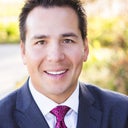Posted underTummy Tuck q&a
Answers (9)
From board-certified doctors and trusted medical professionals
Dr. Simeon Wall, Jr, MD, FACS

SF
Dr. Simeon Wall, Jr, MD, FACS
Board Certified Plastic Surgeon
Answer
Dr. Larry S. Nichter, MD, MS, FACS

LF
Dr. Larry S. Nichter, MD, MS, FACS
Board Certified Plastic Surgeon
Answer
Dr. Kenneth Hughes, MD

KM
Dr. Kenneth Hughes, MD
Board Certified Plastic Surgeon
Answer
Dr. N. Bill Aydin, MD

NM
Dr. N. Bill Aydin, MD
Board Certified Plastic Surgeon
Answer
Dr. Jeremy Pyle, MD
JM
Dr. Jeremy Pyle, MD
Board Certified Plastic Surgeon
Answer
Dr. Usha Rajagopal, MD
UM
Dr. Usha Rajagopal, MD
Board Certified Plastic Surgeon
Answer
Dr. Mel T. Ortega, MD
MM
Dr. Mel T. Ortega, MD
Board Certified Plastic Surgeon
Answer
Dr. Ronald V. DeMars, MD (Retired)
R(
Dr. Ronald V. DeMars, MD (Retired)
Board Certified Plastic Surgeon
Answer
Dr. John Strausser, MD (retired)
J(
Dr. John Strausser, MD (retired)
Board Certified Plastic Surgeon
Answer
More Tummy Tuck Questions
See all Tummy Tuck Q&A
WE SEND PRETTY
EMAILS
What’s trending? Who’s turning heads? Which TikTok myths need busting? We’ve got you. No fluff, no gatekeeping—just real talk. Get our free, unfiltered newsletter.



